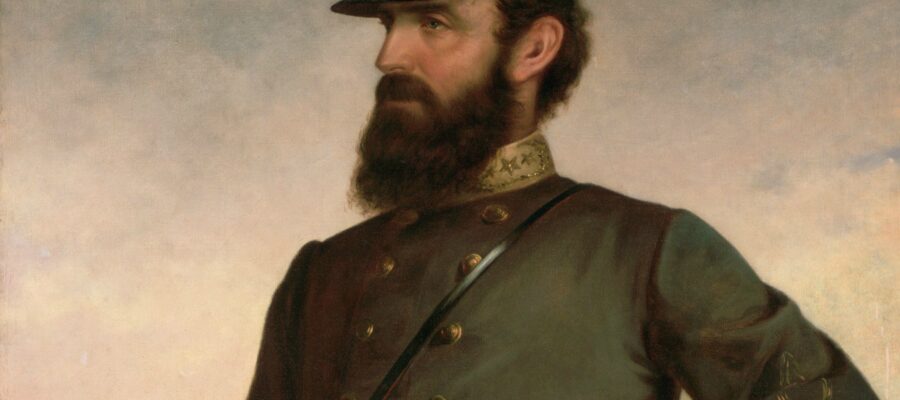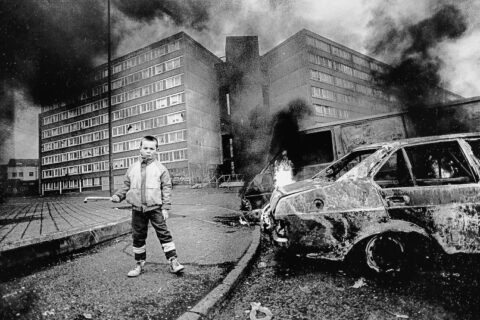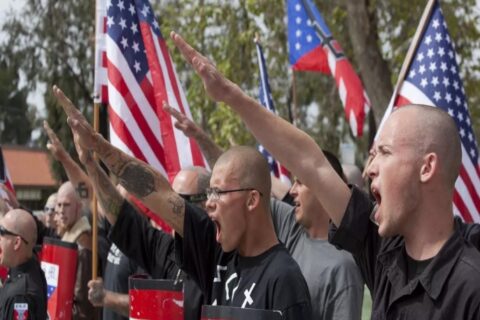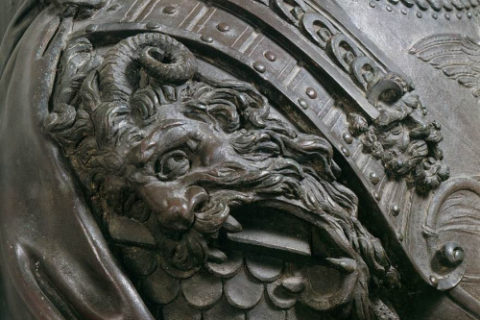On the noon of July 21st, 1861, Brig. Gen Thomas J. Jackson and his First Virginia
Brigade moved up the gentle sloping ridge across from Henry House Hill, just north of
Manassas, Virginia. He was accompanied by Col. Wade Hampton’s Legion, Col. J.E.B. Stuart’s 300 cavalry and a small battery of 6-pound cannons. To the northwest, broken lines of Confederate soldiers were already pouring back across the valley, being driven from their position on Buck Hill by Brig. Gen. Burnside’s First Rhode Island Brigade. General McDowell’s army was on the march and that meant invasion of the South. The Federals would not be easily put off, their intent was to subdue and destroy.
The Northern Virginia terrain was a familiar sight to Jackson and he quickly recognized an advantage the ridge line offered along those rolling hills. In what was considered an unorthodox move at the time, he directed his regiments to form up along the opposite ridge across from the Henry House, utilizing the reverse slope of the hill to act as a natural buffer from rifle fire. The forest along the ridge also provided some measure of protection for his men and their cannons from the superior federal artillery shell that had already begun to fall and explode all around them. Hampton’s Legion of 600 riflemen began peppering the approaching Union troops, buying the First Virginia Brigade extra time to dig in. Jackson ordered J.E.B. Stuart to split his cavalry to the brigade’s left and right flanks, guarding the northern slope and southern route of Sudley Road from any potential threats.
After driving the Confederates from Buck Hill, General McDowell’s union forces reformed their lines and bore down on the Virginians. It wasn’t long before Jackson and his men soon found themselves the focal point of the assault, but the long hours of training, drilling and personal discipline (not to mention the bravery and courage of Jackson’s demeanor) paid immediate dividends. The First Virginia’s lines held firm and when the order was given to charge, they crossed three hundred yards of open battlefield and met the enemy with their bayonets, driving the invaders from their homeland. The charge was later described by Private John Casler of the 33rd Virginia, “The men seemed to have caught the dauntless spirit and determined will of their heroic commander.”
As one whose forebears fought for the Army of Northern Virginia and as an Appalachian man with ancestral roots from same region as Thomas J. Jackson, this story has always inspired me. The strength, discipline, courage and valor the South displayed that day should always be held in our the highest esteem, remembered and venerated for all time. While so many events, symbols and noble characters from our past are demonized by America’s current ruling class, it is easy to forget important moments like these in history and fall into a state of constant black-pilled anger and despair.
I am guilty of this, an indulgent lingering on the losses, betrayals and defeats, both of myself, my people and my ancestors. This state of mind is the desired goal of our enemies, to demoralize and humiliate. Yet, this is not the whole story. The shared narratives of Southern men reaches back much further. As sons of Cavaliers, our sires drove the Spanish Armada from the English Channel under Sir Francis Drake and Sir Walter Raleigh, they Restored King Charles II to his rightful throne and bravely fought in the Revolution to create a homeland for us and our children. Any time the call to arms was given they showed themselves to be men of valor, both loyal and true, just as they did on that day in 1861. So long as we still live, our ancestors do as well. Their blood flows through our veins and their memory is burned into our hearts and their dreams and desires an ever present vision before us. I encourage each of you to take time to celebrate the small victories, the times when we and our fathers rose to the challenge and stood victorious on the field of battle.
Deo Vindice.
-By JC

O I’m a good old rebel, now that’s just what I am. For this “fair land of freedom” I do not care at all. I’m glad I fit against it, I only wish we’d won, And I don’t want no pardon for anything I done.






Thanks for sharing, that we may remember the valor of our ancestors and imitate them.